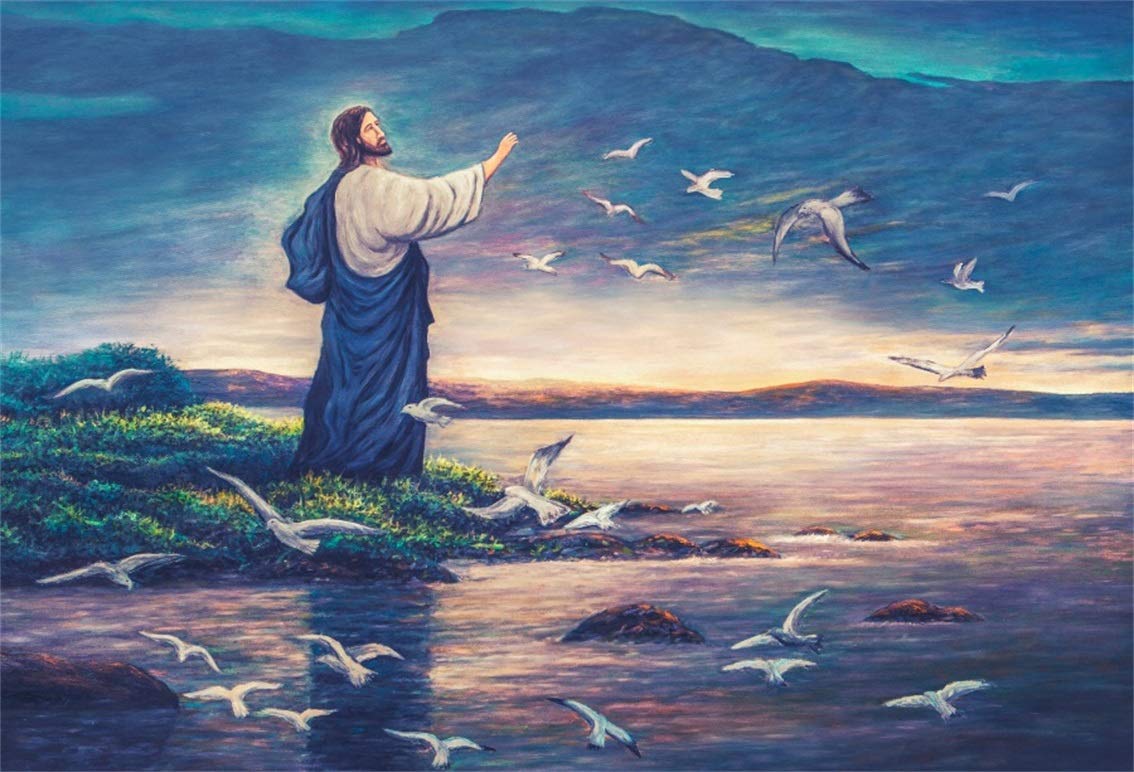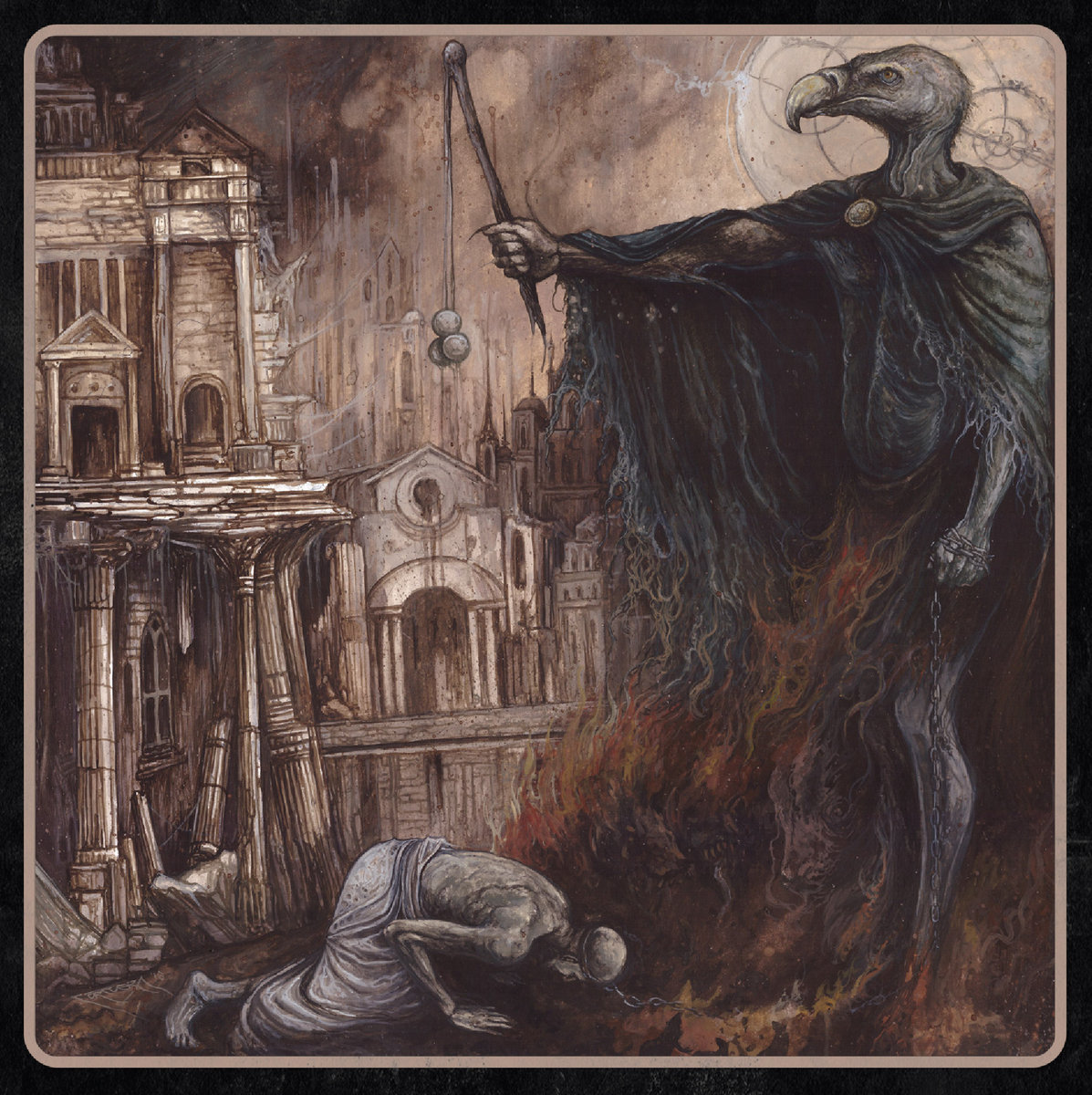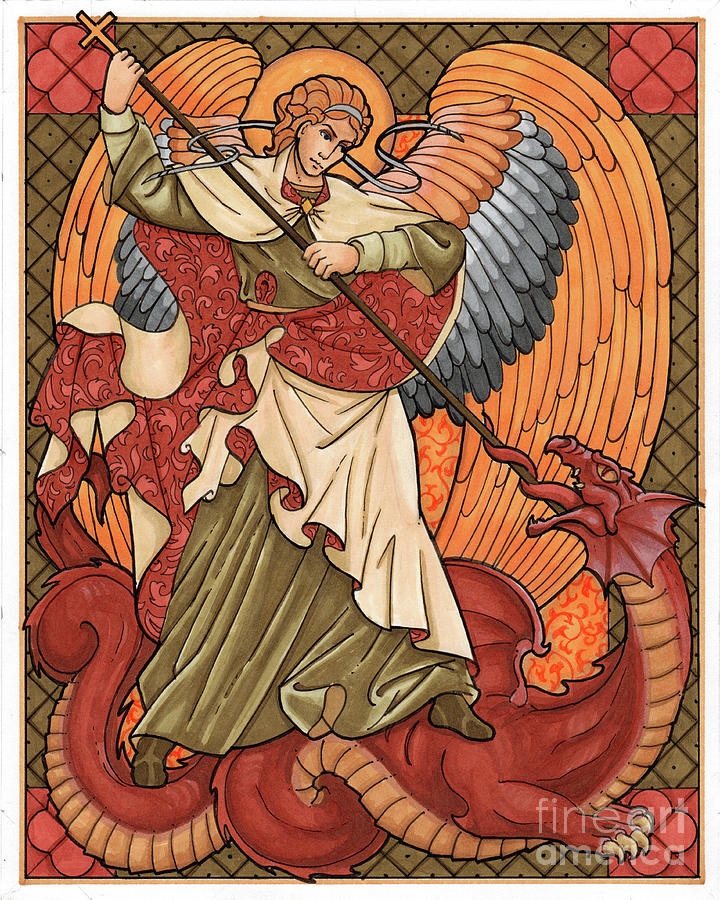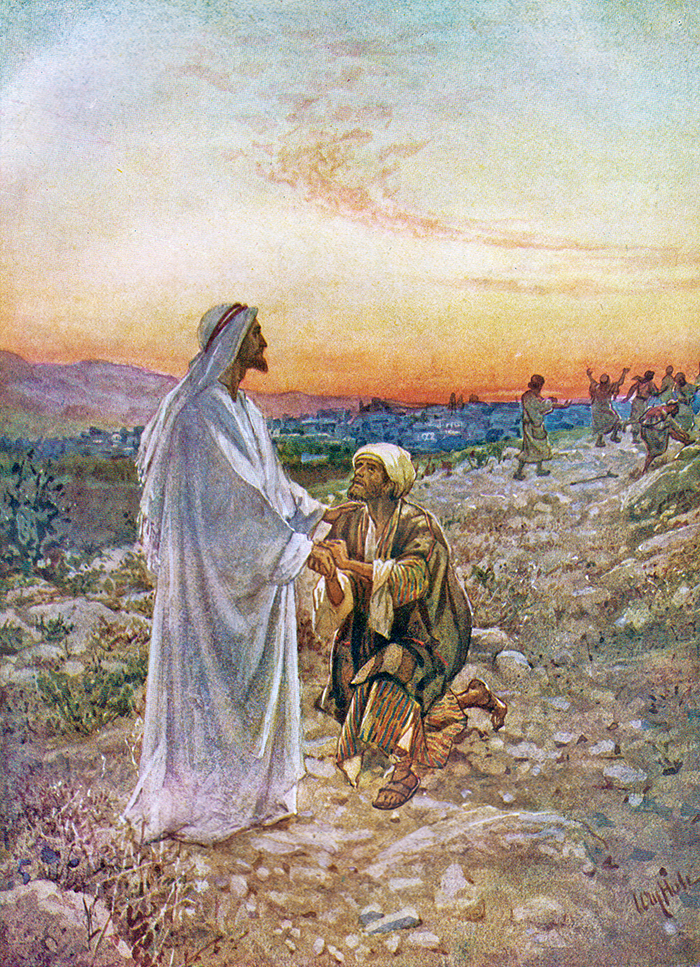
“Therefore do not worry, saying, ‘What shall we eat?’ or ‘What shall we drink?’ or ‘What shall we wear?’ For after all these things the Gentiles seek. For your heavenly Father knows that you need all these things. But seek first the kingdom of God and His righteousness, and all these things shall be added to you.”
The point of this passage here is not the “and all these things shall be added to you.” This leads to that “Jedi mind trick” way of looking at things we mentioned in the previous devotion. The idea is, “just focus the mind and your faith on today, and watch as the Lord gives you all those things you wanted in the first place – woops! you took the focus off of God, that’s why you’re not getting that new car!”
At a certain level, there’s some truth here. Looking at the bird and lily should enrich us – that’s why Jesus introduces these creatures – but that enrichment is not earthly treasures at all. And we have to say “at all” because of the evidence at hand. Many Christians get the shaft and go to bed naked and hungry; meanwhile many rotten people live in luxury. If anything, this fact teaches Jesus’ teaching from the sermon on the mount, that God blesses the good and evil alike. Again, as I said the previous devotion, be careful if you are “blessed” – it may mean nothing more than that God is loving His enemies.
But just because Jesus isn’t talking about “earthly” treasures doesn’t mean He’s not talking about material, physical, or yes, earthly (new earthly) treasures. Didn’t Jesus say that the body is “more than” clothing? And life is “more than” food and drink? So, the body and its life are still part of the equation! We have to affirm this to avoid the Gnostic pitfall and think Jesus is making a body-spirit contrast here.
No, the food we eat is “food indeed” and the drink we drink is “drink indeed” (John 6). Likewise, the clothes we wear is like being “further clothed, that mortality may be swallowed up by life.” This is talking about the transfigured body, a physical but glorified body.
And that seems to be how the “and all these things shall be added to you” should best be interpreted. Again, because of the evidence, that has to be the only way to interpret it. Consider also, this is why Karl Marx hated Christians and the Gospel, because for the naked, poor, hungry, and thirsty, the Gospel did not say, “Join the revolution” but rather “Don’t worry about it, you’ll get a greater clothing, a greater food, and a greater drink in the world to come.”
But the American Capitalist interpretation is to be avoided just as well, which is, “Apply Christian principles to personal finance, and give your first fruits to the Lord – seek first the kingdom of God and His righteousness – and watch as your portfolio gets bigger, because the Lord promises, ‘And all these [other] things will be added to you.’ ”
So again, the evidence is that there are naked, hungry, and thirsty Christians and wealthy non-Christians. Interpreting the “added unto you” as fulfilled in this world can trouble the consciences of the poor, who wonder when their “added” is coming, or worse, who wonder if their lack of an “added” windfall is proof that they must not have faith.
No, that for which we hunger, thirst, and desire to be clothed will certainly be “added unto” us, but by faith. Note, Jesus has already talked about hunger and thirst in the sermon, hungering and thirsting for righteousness. He’s also talked about seeking, when He said, “Seek and you will find.” Both teachings, coupled with our passage today, round out the teaching: Those who hunger and thirst not just for food and drink, but for the righteousness of God, will most certainly find what they seek, and they will be filled. That’s how the Lord will “add unto” them.
Note also, Jesus has already taught about clothing, how little we really need it. “If anyone wants to sue you and take away your tunic, let him have your cloak also.” The whole tone here is that we can be naked in this world, because we have it all in the next world. When you’re clothed with the righteousness of God in Christ, what need is there for earthly clothing? And if we need to get to the heart of the matter, isn’t that how the Lord created us? And wasn’t clothing something needed to cover up shame? But what shame is there when your sins are forgiven, as you are clothed in Christ’s righteousness?
Interesting how the Sacraments nicely sum up Jesus’ teaching here. Non-believers (gentiles) worry about food, drink, and clothes.
Believers hunger and thirst for a different food and drink, the righteousness of God fulfilled in Christ, which is given to them through food and drink, bread and wine, His body and blood – the whole Gospel of Matthew draws this out beautifully, in the account of the Canaanite woman, in the feedings of the four and five thousand, and in the last supper.
Believers also see a different clothing, when they “put on” Christ in baptism, and as they seek the transfigured body of the resurrection. The Gospel of Matthew teaches this as well, perhaps not as subtly as it teaches communion. In the last chapter of Matthew, having risen from the dead and having attained His glorified body, Jesus claims His victory over death and His authority over all things in heaven and on earth. How are others (new disciples) to be embraced into this victory? By baptism “in the name of the Father and of the Son and of the Holy Spirit.” And by teaching.
Baptism in water, in the name of the Lord, is certainly a clothing. Again, from St. Paul, “For as many of you as were baptized into Christ have put on [clothed himself in] Christ.”
The sacraments also work in the fact that Jesus isn’t spiritualizing here. He’s not just talking about spiritual food and drink, or spiritual clothing, as opposed to material stuff. We get that from His “more than” comments: the body is “more than” clothing; life is “more than” food and drink. “More than” parallels St. Paul’s talk of being “further clothed.” The idea is Jesus takes our bodies, and makes them to be something greater than what they are in their fallen condition. We still eat, but we eat the body and blood of the Lord. We’re still clothed, but we’re clothed in the waters of baptism and the teachings of Christ.
Both are fulfilled in the Church. Church is where those who seek the kingdom of God and His righteousness find their food and drink, and are clothed in their baptismal garments. It’s a liturgical garment, a feast indeed, not some non-material drifting of our spirits into never-never land.







